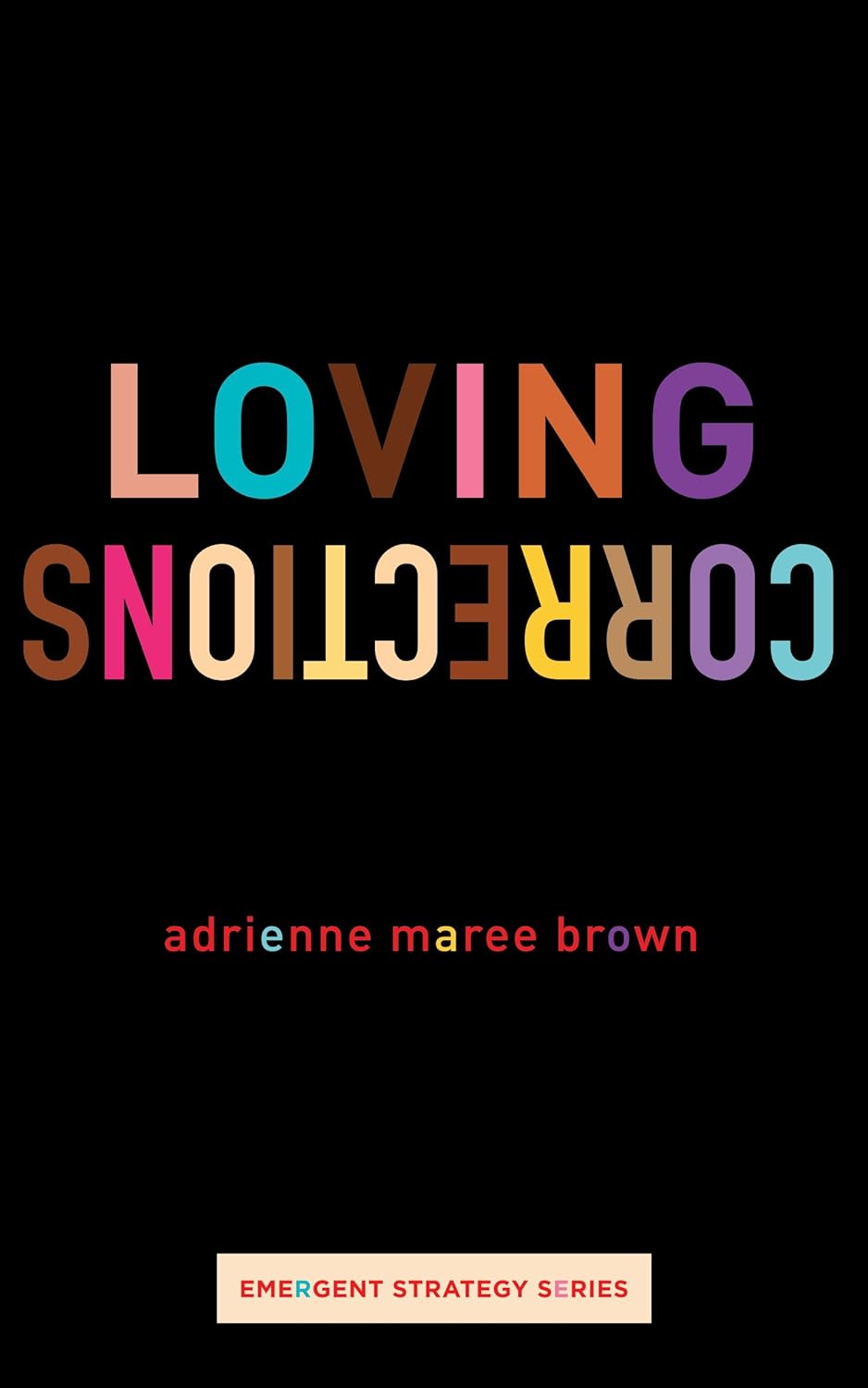Review of Loving Corrections by adrienne maree brown

Loving Corrections
adrienne maree brown
AK Press, 2024, 200 pages
$18.00
Reviewed by Courtney Heidorn
Loving Corrections is adrienne maree brown’s most relational book yet, exploring how communities can get “specific, and deeper, when we have accumulated the wisdom to challenge harmful norms of privilege and power” (4). brown wants us all to retain a curious posture in the face of diverse people and problems. Readers are invited to confront uncomfortable truths about their own biases—and how to confront others’—in the name of a love for our collective future.
brown did not write Loving Corrections to police activists, reprimanding them for not believing the right things or living out their solidarity in a specific way—in fact, brown’s essays rarely contain explicit political positions that may divide her audience. Instead, there is an entire chapter titled, “Righting Solidarity: Flocking Together.” She wisely shares that “confusion is a colonial tactic,” meaning that a lack of community between oppressed groups creates dissociation from intersectional issues that could be reconciled with a robust solidarity (85). Relationships come first in activism, brown believes, and it is the work of the activist to flock “with the people,” not to be in a position of power that confuses or fractures groups (92, italics brown’s).
In the chapter “Love Looks Like Accountability,” brown dives deep into how our personal relationships can have a ripple effect on how our society functions. In a digital world where “therapy speak” is often used incorrectly or in harmful ways, this chapter is a wonderful refresher on how we can love ourselves and others through the right ways of engaging in relationships. brown quotes Prentis Hemphill: “boundaries are the distance at which I can love you and me simultaneously” (153). brown writes about how we must be responsible for our internal state and how it might impact others, how we must apologize and receive apologies, and how to know when it is best to let a relationship go. These feel like simple emotional teachings we learn in elementary school, but later in life, our capitalist system does not reward this loving behavior. Starting small with improving love in everyday relationships will create a more accountable and loving society.
In the conclusion to Loving Corrections, brown reveals that this is the last time she will write specifically for those “active in movements for social and environmental change” (189). This does not mean her work, nor ours, is close to finished. Loving Corrections is the sixth book that brown has written in the Emergent Strategy Series—which contains thirteen books in total—and oh boy, what a comprehensive and necessary series it is. These books are gentle yet mighty tools for activists and their communities. Loving Corrections affirms that, always, “there is love at the center” (7).
Courtney Heidorn (she/they) is an Assistant Editor for Chestnut Review and holds a BA in English and Creative Writing from Azusa Pacific University. You can see more of their work in their chapbook, Palimpsest, from Bottlecap Press and in CURIOUS Magazine and Pearl Press. Find them on Instagram and Substack @palimpsestpoems.
"Empowerment comes from ideas."
― Charlene Carruthers
"Your silence will not protect you."
— Tourmaline
"Gender is the poetry each of us makes out of the language we are taught."
— Leila Raven


